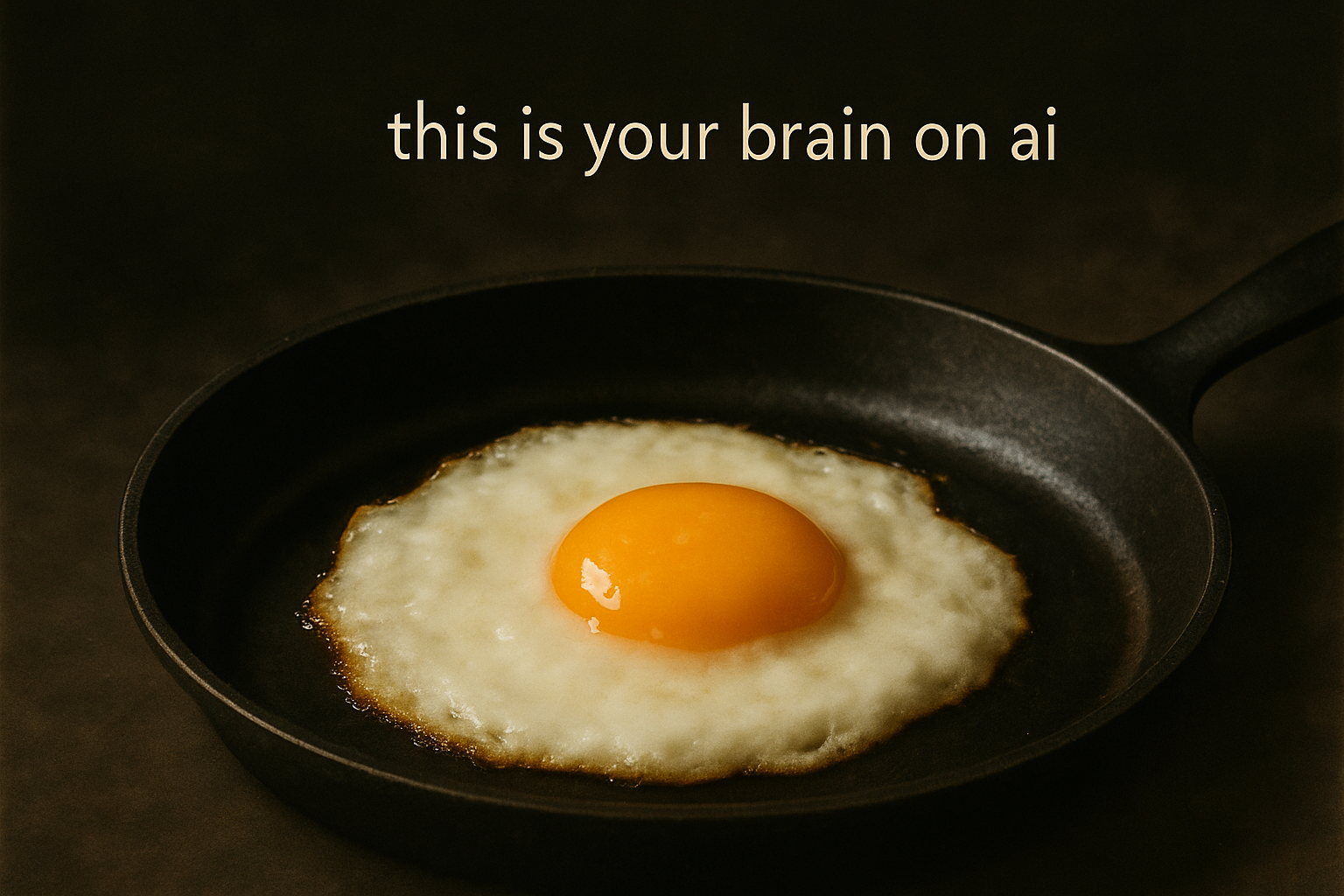Is AI making us dumb?

Look, I get it. ChatGPT is great. It answers questions instantly, writes decent copy, and never gets tired.
But here’s the thing… it’s also turning your brain into mush.
And before you roll your eyes and click away, stick with me. I use AI almost every day.
But the more I lean on it, the more I’m starting to feel like my critical thinking skills are ever so slowly diminishing. Here’s why.
The uncomfortable truth about AI addiction
You know that slightly guilty feeling you get when you fire up ChatGPT instead of actually thinking through a problem?
Turns out that’s not just professional insecurity. It’s your brain telling you something important.
A recent study found something pretty damning: the more you use AI tools, the worse you get at critical thinking.
AI usage alone explained 37% of the variance in critical thinking scores. Younger users were hit hardest – those aged 17-25 showed both the highest AI dependence and the lowest critical thinking abilities (dark times for Gen Z).
They call it “cognitive offloading.” Which sounds fancy, but basically means you’re outsourcing your thinking to a machine and your brain is getting lazy.
And the more you do it, the worse you get at thinking for yourself.
Welcome to cognitive debt
Remember technical debt? That’s when developers take shortcuts and create a mess they’ll have to clean up later. Well, there’s a new kid on the block: cognitive debt.
It’s what happens when you arrive at conclusions without understanding how you got there. You take the AI shortcut, get your answer, and move on. Problem solved, right?
Wrong.
Because unlike technical debt, cognitive debt is invisible. Nobody knows what gaps you’ve created in your thinking until it’s too late.
And when those gaps start showing up in your work, it’s already a problem.
Falling into the trust trap
But these aren’t the only gaps to worry about. It can also manifest as knowledge in your work.
We trust AI more than we should, and studies show that we blindly follow advice from our robot companion – even when it contradicts what we can see or know ourselves.
In 40% of workplace tasks, people accept AI outputs with zero scrutiny. This automation bias means we’re getting lazy and actively ignoring our own better judgment in favour of the machine.
The thing AI can’t do (and never will)
AI simulates concern without stakes. It can generate “passionate” arguments in an instant. It’s endlessly accommodating.
But you know what it can’t do? Actually give a damn.
Real writing, the kind that makes people stop scrolling and pay attention, comes from conviction. From having something and knowing what you actually want to say.
AI can help you say it better. It can clean up your grammar and suggest synonyms, but it can’t care for you.
And if you let it try, your writing starts to sound like everyone else’s AI-generated writing. Smooth, polished, and completely forgettable.
So where does that leave us?
I’m not suggesting we all delete our ChatGPT accounts and go back to staring at blank pages. That’s not realistic, and frankly, it’s not necessary.
But we need to be smarter about when and how we use these tools.
If you come already armed with ideas, you’ll likely get a lot more bang for your buck. AI is great at scaling up existing ideas, plans, and thoughts, giving you extra angles to pursue.
So before you hit that AI shortcut, ask yourself: “How much cognitive debt am I about to rack up here?” If it’s a lot, maybe do the thinking yourself.
The bottom line
AI is incredible. It’s also addictive. And like most addictive things, it feels great in the moment but leaves you worse off in the long run.
The solution isn’t to avoid AI altogether. It’s to use it like a power tool, not a crutch.
Because at the end of the day, thinking is still a human job. And if we’re not careful, we’re going to forget how to do it.
Your brain is a muscle. Use it or lose it.
Now if you’ll excuse me, I need to go think about something the hard way.
